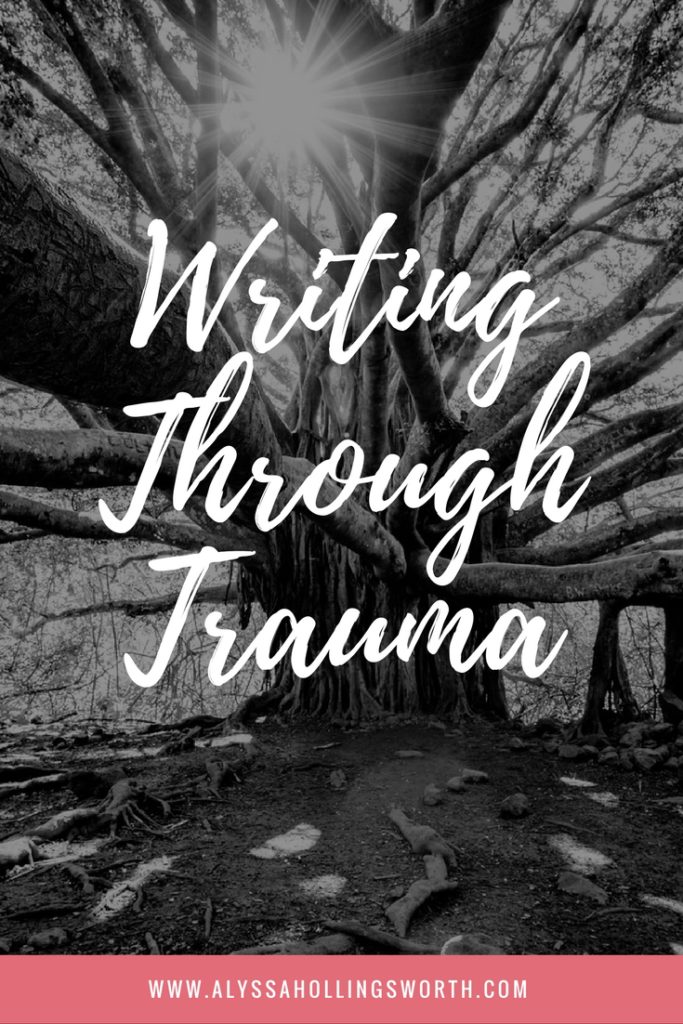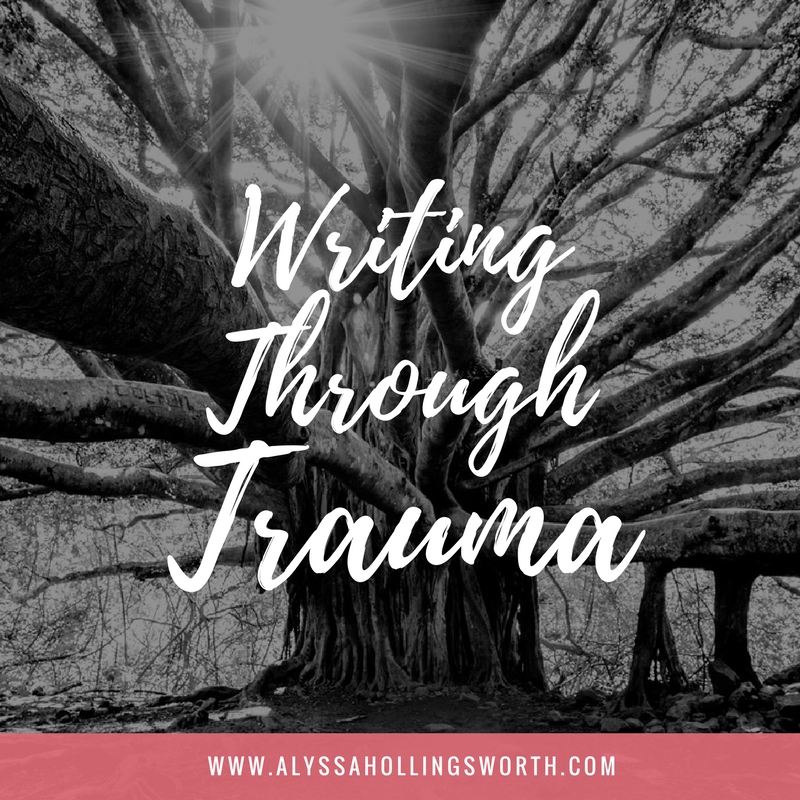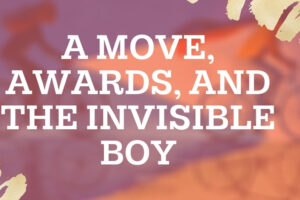 On the WriteOnCon forums this year, an interesting topic came up: How do you write when you have personal trauma(s)? Do you use them, or avoid them?
On the WriteOnCon forums this year, an interesting topic came up: How do you write when you have personal trauma(s)? Do you use them, or avoid them?
I only have my own experience to draw from, and everyone is unique. Our wounds are different and the ways we carry them are different. So please take this with a grain of salt.
In my young life, I’ve already had to carry a few traumas. Mine (like most) rise from situations where I (or a loved one) were incredibly unsafe, and afterward my life was entirely changed. That how my counselor defines trauma, by the way — an event that changes the core of who we are.
Without Those Things, I wouldn’t be who I am today. That’s something to grieve over, but it’s also something important to know about myself. Like or not, Those Things are part of my core, and that means they’re going to sneak into another vital bit of me: My writing.
Because of those traumas, I am a reserved and controlled person in most contexts. It’s a learned characteristic for me — after all, doctors don’t like it when teenage patients start sobbing in the middle of a procedure! Haaa.
Anyway, my carefully moderated emotions actually caused problems with many of my early manuscripts. My characters responded to crises with too much composure half the time — a byproduct of me not wanting to make them (or myself) vulnerable. Or I just left their feelings entirely out of the equation.
The funny thing? I 100% did not know this until I went to counseling. Even when I was agent-shopping and kept receiving comments like, “I didn’t particularly connect with this character’s emotions…” I still thought I was doing everything right and more or less shrugged off the feedback. (Here’s a spoiler: When multiple people from disconnected parts of your life give you the same feedback, you should probably listen.) The instinct to keep a tight upper lip was so ingrained in me that I didn’t recognize my characters had taken it on, too.
I had to work hard in ILLUMINATE to make the emotions clearer on the page so my cast didn’t act like a bunch of robots. Sometimes when it was impossible to get the emotion right, I even brought my scenes with me to counseling (which my counselor loved). It always went back to those distant traumas and the canals they dug in my thinking patterns. I had to learn how to let myself process The Things before I could make my characters react with real feeling.
In a strange way, I’ve learned that using the traumas I’ve faced helps me to access the piece that makes my writing stand out. As I began THE ELEVENTH TRADE — already well into counseling and on my journey to healing — the change was immediately evident. My agent even noticed: The way I wrote emotions had changed.
So, I’ve found ways to make myself be honest about my traumas (read: counseling, journaling, talking with trusted ones about it) and ways to make Those Things safe to access when I need to dig into my heart. I don’t write about the exact instances of my trauma, but I use the scraped-scar feelings to push me as deep as possible with my characters.
For instance, in THE ELEVENTH TRADE my main character wrestles with an intensely traumatic experience. Even though his trauma and mine are not the same, I used the bits that overlap (like “the almost-memory sits sticky in my head” when he’s trying not to think of The Thing) to help me get there.
I also find it helpful to block out specific times for the most difficult scenes. In the same book, I had two chapters where my character loses control completely and has to relive what happened. I scheduled a Sunday afternoon, put on headphones, and pretty much didn’t breathe for three hours straight while I forced myself to write until I couldn’t stop. I had to put myself in that unsafe space of spiral-panic so that I could show his. But at the end of the three hours, I took off my headphones, got tea, and watched a show until I’d shaken it off.
It’s exhausting, but because I now know I can pull myself back out and into a safe place, it’s been effective for me.
I definitely wouldn’t recommend this sort of method if you haven’t spent a lot of time learning how to handle your traumas. Don’t put yourself in a dangerous place for the sake of a scene. Seek your own healing first, come up with ways to cope, and only go there when you’re safe.


















